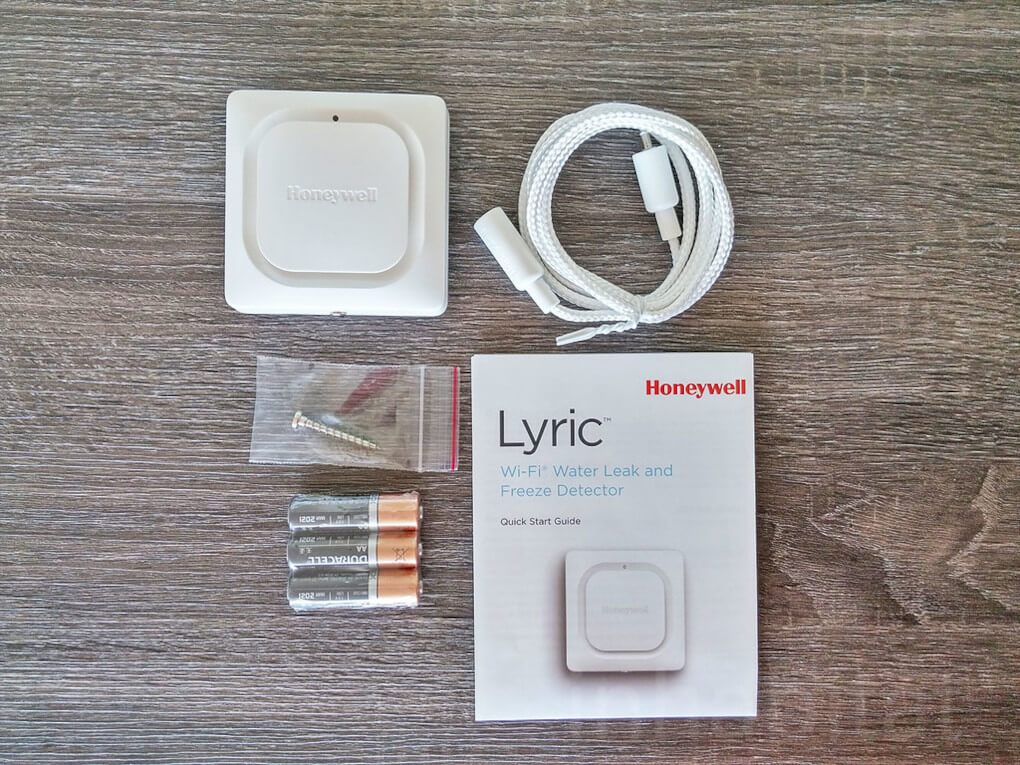Prevent Costly Repairs: Easy Steps to Water Damage and Freeze Detection

Homeowners in Cape Town may be more concerned about fires, but their insurance providers say they should be more concerned about water. Severe water damage can be caused by something other than a natural flood, such as a broken water heater, frozen pipes, or an overflowing toilet or sink.
The damage from a plumbing leak can happen right under your nose, with little warning and rapid accumulation of cost. Too many Cape Town residents have neglected to safeguard their properties against this threat. You wouldn’t think twice about installing a smoke detector in your home, so what gives you the idea that you can skip out on a water leak and freeze detector system?
When homeowners install leak detectors and sensors in areas of the home prone to water leaks and water damage, they receive an early warning of potentially costly plumbing issues. The system’s app can notify you of a leak on your smart device even when you’re not at home. The sooner you are made aware of a problem, the sooner you can take steps to fix the leak and reduce the potential damage to your home.
Concerning Water Freeze and Leak Detectors
When a pipe freezes or a leak occurs inside the house, a water leak detection system will alert the homeowner immediately. This will allow them to take immediate action to prevent costly structural damage. A sensor in a smart water leak detector checks for the presence of water as well as the surrounding temperature and humidity. Each Wi-Fi water-sensing cable connects to your home network, and the smart water sensor shares data through an associated app on your smartphone or another mobile device.
Having a water leak detector in your Cape Town home can lessen the likelihood of expensive water damage. Some home insurance providers reward customers who install these systems with discounts for the added layer of safety they provide. Small amounts of water can be detected by the leak and freeze detector units, alerting homeowners to plumbing problems so they can fix them before major leaks occur.
How It Works
Multiple sensors work together in a water leak detector to identify the presence of water in an unintended location. When water is present, the electrical conductivity of the cable is measured, and the resulting signals are sent to the Wi-Fi water detector app. The system’s sensors send notifications to the homeowner’s app or the monitoring service.
Each indoor leak detector in your home is powered by a battery that will last for at least two years before it needs to be swapped out. Wi-Fi water detectors connect to smart home hubs and other smart home systems without the need for a base station, making leak detection systems easy to install and set up. It is possible to extend the system by adding more cables to protect the entire home from any potential water damage.
Automatic shutoff valves are commonly installed alongside water leak and freeze detection systems. In this setup, when a water leak alert is received, the water supply to the house can be shut off remotely, saving the homeowners hundreds of gallons of water that would otherwise be wasted. When water is detected, some leak detection systems and freeze detector units immediately turn off the water supply to prevent damage.
Where to Put Them
To prevent water damage, leak detector systems place sensors in strategic locations around the house. To provide the desired security, they must be set up and installed properly. Installing water-sensing cable sensors in high-risk areas is advised because large amounts of water could potentially flood the home in the event of a leak. When setting up your leak and freeze detector system, the following spots are ideal for placing sensors:
Basements
Unfortunately, 98% of basements will suffer water damage at some point during the lifetime of the house. Because of its low elevation, the basement is at risk of being flooded by rising groundwater that seeps through the foundation. Water damage isn’t the only thing that can result from issues with temperature and humidity; mold and mildew flourish in warm, damp places, and can quickly spread throughout the house and its contents.
Storage Spaces
A leak detector sensor is a necessary addition to any utility or water heater room. A conventional tank water heater has the potential to flood a home with gallons of water if it fails. Most system failures start with smaller leaks that can be detected by sensors before they cause serious damage.
Bathrooms
Leaks in the bathroom can happen for a variety of reasons, including clogged toilets, broken pipes, and other plumbing problems. Put sensors that detect water leaks in every bathroom for optimal safety.
Flooding in basements and crawl spaces is typically caused by faulty sump pumps. If the pump does not activate or cannot remove water quickly enough, water will overflow the sump basin and flood the area. To prevent flooding, it is a good idea to install sensors at the top of the sump pit, which will notify you if the water level rises too high.
Changing Rooms & Laundry Facilities
A common source of water leaks and damage is ruptured washing machine hoses. Homeowners should replace these hoses regularly, but they often aren’t maintained. If a homeowner installs sensors under their washing machine, they will be notified immediately if any water leaks due to a broken hose or other malfunction.
Thermostats and Air Conditioners
The increasingly popular air conditioning systems and condensing furnaces in Cape Town homes both contribute to the city’s condensation problem. Water can leak out and cause flooding if the drain lines or drip pans become clogged or damaged. Water damage can be avoided and HVAC efficiency can be improved by installing sensors that alert you to problems before they become severe.
Should I Install a Water Leak and Freeze Detector in My House?
Both water leak and freeze detectors are useful in every Cape Town home. The early warning from a leak detector can save you tens of thousands of rands in repairs and the loss of irreplaceable possessions caused by water damage. Click here to get in touch with a local plumber immediately.



